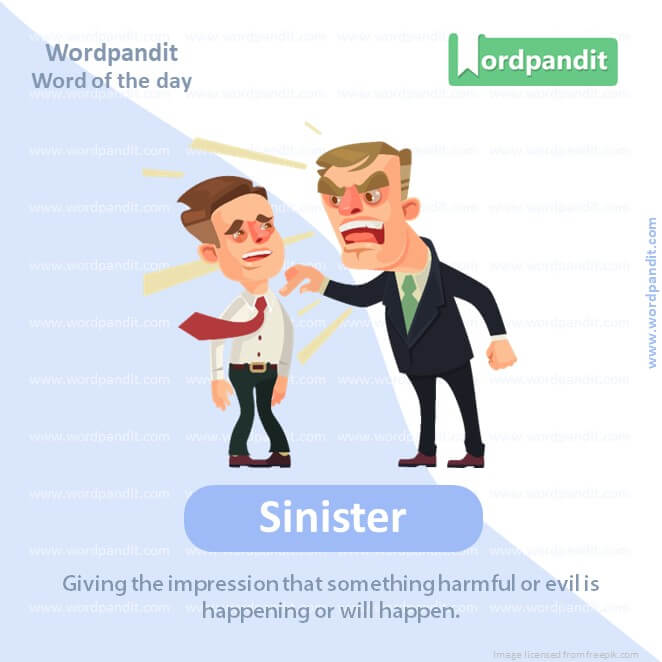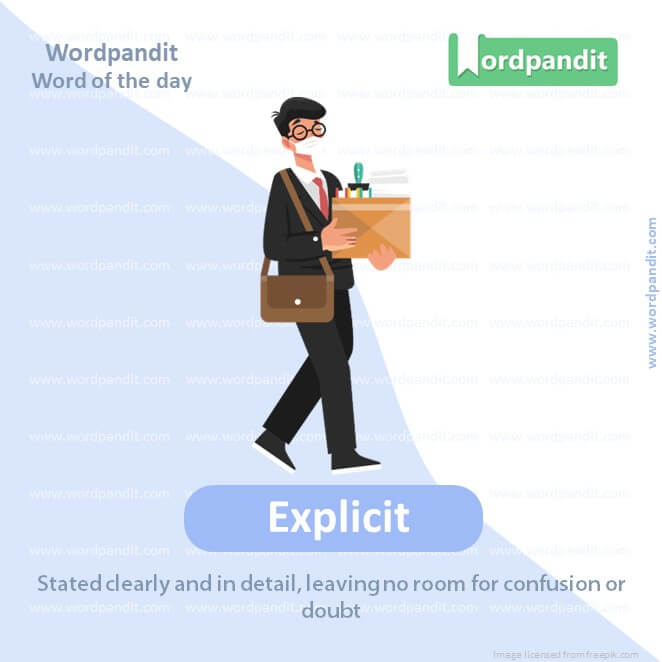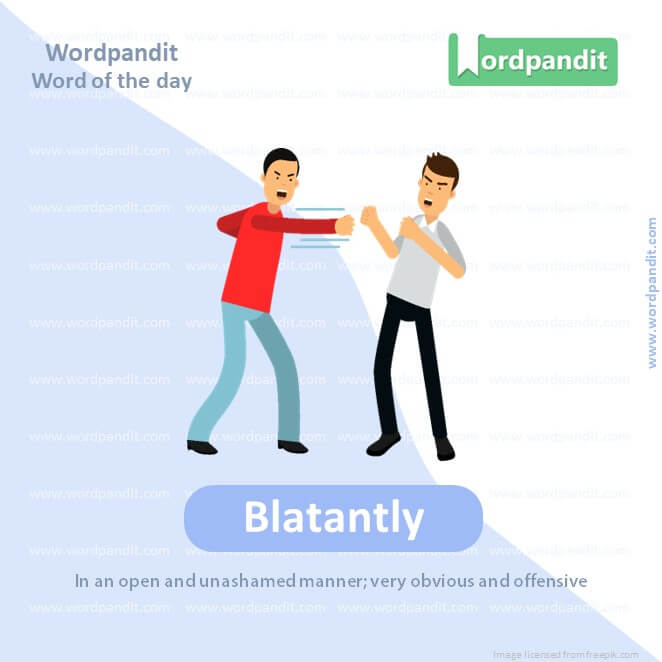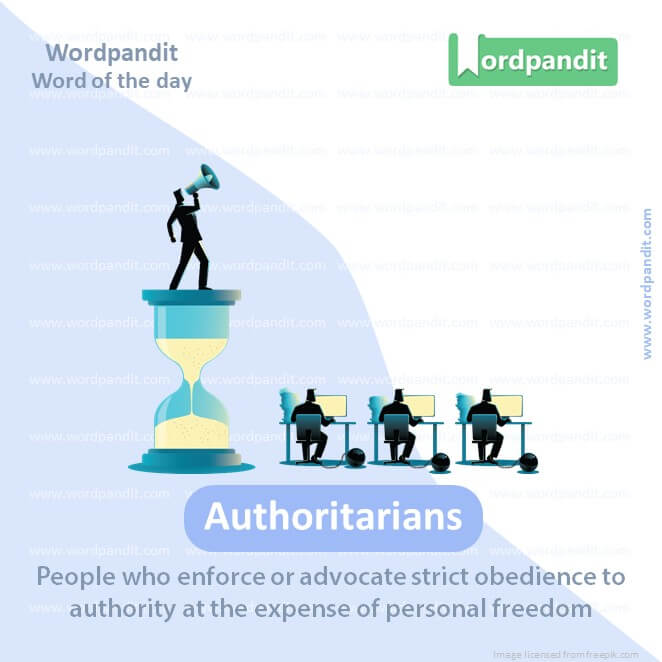Daily Vocabulary Words: List of Daily Used Words in Leading International Newspapers
Hi there. Welcome to this special section @ Wordpandit.
Our endeavour here is very simple: to highlight important daily vocabulary words, which you would come across in leading newspapers in the country. We have included the following newspapers in our selection:
• The New York Times
• The Washington Post
• Scientific American
• BBC
• The Guardian
• Psychology Today
• Wall Street Journal
• The Economist
We are putting in extensive work for developing your vocabulary. All you have got to do is be regular with this section and check out this post on a daily basis. This is your repository of words that are commonly used and essentially, we are posting a list of daily used words. Hence, this has significant practical application as it teaches you words that are used commonly in leading publications mentioned above.
Visit the website daily to learn words from leading international newspapers.

WORD-1: SINISTER
CONTEXT: Amid the political turmoil, there were whispers of sinister plots and hidden agendas, fueling public distrust in the government.
SOURCE: The Economist
EXPLANATORY PARAGRAPH: Imagine you’re watching a movie, and there’s a villain in it who looks very scary and does bad things. That feeling you get when you see that villain is called “sinister”. It means something that feels evil or harmful. It’s like the opposite of “good and kind”.
MEANING: Giving the impression that something harmful or evil is happening or will happen. (adjective).
PRONUNCIATION: sin-iss-ter
SYNONYMS: Evil, foreboding, ominous, dark, menacing, malevolent, malign.
USAGE EXAMPLE:
1. The old abandoned house at the end of the street has a sinister look.
2. The way he laughed was downright sinister.
3. There was something sinister about the forest at night.
4. The dark clouds had a sinister appearance, making everyone feel uneasy.
WORD-2: DESPAIR
CONTEXT: In the aftermath of the natural disaster, the affected communities were left in a state of despair, struggling to rebuild their lives.
SOURCE: The Guardian
EXPLANATORY PARAGRAPH: Think about a time when you really, really wanted a toy, but you couldn’t get it no matter how hard you tried. That sad and hopeless feeling is called “despair”. It means you’ve lost all hope or joy in something.
MEANING: A feeling of losing all hope (noun).
PRONUNCIATION: deh-spair
SYNONYMS: Hopelessness, disheartenment, gloominess, despondency, melancholy, dejection.
USAGE EXAMPLE:
1. After losing his pet, Jake was filled with despair.
2. The athlete was in despair when he couldn’t compete due to his injury.
3. The constant rain filled the campers with despair.
4. Watching the forest burn, the villagers felt a deep sense of despair.
WORD-3: VIGOROUS
CONTEXT: The vigorous debate on healthcare reform in Congress highlighted the passion and determination of lawmakers to find a solution.
SOURCE: The Washington Post
EXPLANATORY PARAGRAPH: Imagine you’re dancing or running super fast with all your energy. That’s what “vigorous” means. It’s like doing something with a lot of power and strength.
MEANING: Done with power, force, or energy (adjective).
PRONUNCIATION: vig-uh-rus
SYNONYMS: Energetic, strong, powerful, lively, dynamic, forceful.
USAGE EXAMPLE:
1. He made a vigorous attempt to lift the heavy box.
2. The trees were swaying due to the vigorous wind.
3. She led a vigorous workout session at the gym.
4. The debate became vigorous and heated as both sides argued.

WORD-4: EXPLICIT
CONTEXT: The report contained explicit details of the environmental damage caused by the industrial spill, sparking outrage among environmental activists.
SOURCE: The New York Times
EXPLANATORY PARAGRAPH: “Explicit” is when something is told very clearly and directly, leaving no doubt. Like when your teacher gives you clear instructions on how to do a project, that’s explicit.
MEANING: Stated clearly and in detail, leaving no room for confusion or doubt (adjective).
PRONUNCIATION: ex-pliss-it
SYNONYMS: Clear-cut, straightforward, definite, direct, unequivocal, unambiguous.
USAGE EXAMPLE:
1. The teacher gave explicit instructions for the assignment.
2. The sign had explicit directions on how to exit the building.
3. The recipe had explicit steps to follow.
4. She was explicit about her feelings and intentions.

WORD-5: BLATANTLY
CONTEXT: The company was accused of blatantly disregarding safety regulations, resulting in a series of workplace accidents.
SOURCE: BBC
EXPLANATORY PARAGRAPH: “Blatantly” means doing something in a very obvious and open way, without trying to hide it. Like if someone took a cookie from the jar and didn’t even try to be sneaky about it.
MEANING: In an open and unashamed manner; very obvious and offensive (adverb).
PRONUNCIATION: blay-tant-lee
SYNONYMS: Openly, overtly, undisguisedly, clearly, plainly, obviously.
USAGE EXAMPLE:
1. He blatantly lied about finishing his homework.
2. The sign was blatantly ignored by the trespassers.
3. She blatantly expressed her disagreement in the meeting.
4. Despite the rules, he blatantly used his phone during the test.

WORD-6: OPPORTUNISM
CONTEXT: During the crisis, some politicians were criticized for their opportunism, using the situation for personal gain rather than addressing the needs of the people.
SOURCE: Al Jazeera
EXPLANATORY PARAGRAPH: “Opportunism” is when someone takes advantage of situations for their own benefit, even if it might not be the right or fair thing to do. Like if someone finds a lost toy and keeps it for themselves instead of trying to return it.
MEANING: The practice of taking advantage of opportunities or circumstances, often with little regard for principles or consequences (noun).
PRONUNCIATION: opp-or-toon-izm
SYNONYMS: Exploitation, self-interest, self-seeking, manipulation, advantage-taking.
USAGE EXAMPLE:
1. The politician’s opportunism was evident when he changed his opinions for votes.
2. Many criticized his opportunism during the crisis.
3. The company’s opportunism led to many unfair deals.
4. Opportunism can lead to mistrust among friends.

WORD-7: AUTHORITARIANS
CONTEXT: Human rights organizations raised concerns about the growing influence of authoritarian leaders in the region, leading to a decline in democratic values.
SOURCE: The Guardian
EXPLANATORY PARAGRAPH: “Authoritarians” are people who like to be in control and tell others what to do. They want everyone to follow their rules and orders, and they don’t like when people disagree with them.
MEANING: People who enforce or advocate strict obedience to authority at the expense of personal freedom (noun).
PRONUNCIATION: aw-thor-ih-tare-ee-uhns
SYNONYMS: Dictators, despots, tyrants, autocrats, totalitarians, oppressors.
USAGE EXAMPLE:
1. The authoritarians in the regime suppressed any form of protest.
2. Many nations worry about the rise of authoritarians in modern politics.
3. Authoritarians often seek to control the media and information.
4. The book discussed the challenges of living under authoritarians.
WORD-8: IMPLORING
CONTEXT: Protesters gathered outside the government building, imploring officials to take immediate action on climate change before it was too late.
SOURCE: Scientific American
EXPLANATORY PARAGRAPH: “Imploring” is like begging or asking for something very, very nicely and sincerely. Imagine if you really wanted an extra cookie and you said, “Please, please, can I have one more?” with big puppy eyes. That’s imploring.
MEANING: Asking earnestly or desperately (verb).
PRONUNCIATION: im-plore-ing
SYNONYMS: Pleading, begging, entreating, beseeching, urging, requesting.
USAGE EXAMPLE:
1. She looked at him with imploring eyes, hoping he’d agree.
2. The child was imploring his mother to buy the toy.
3. The letter was written in an imploring tone, seeking help.
4. He was imploring her to stay and not leave.
WORD-9: MIRAGE
CONTEXT: The promises of economic prosperity by certain political figures were often seen as a mirage, with little substance behind their claims.
SOURCE: The Economist
EXPLANATORY PARAGRAPH: A “mirage” is like a magic trick that nature plays on our eyes. Imagine you’re in a hot desert and you see water far away, but when you get closer, there’s no water at all. It’s just an illusion or a trick that our eyes see because of the heat.
MEANING: An optical illusion caused by atmospheric conditions, especially in a desert or on a hot road, that looks like a distant pool of water or a mirror (noun).
PRONUNCIATION: mi-raaj
SYNONYMS: Illusion, hallucination, apparition, delusion, optical deception, phantasm.
USAGE EXAMPLE:
1. Thirsty travelers in the desert were disappointed to find that the water was just a mirage.
2. From a distance, the shimmering road seemed like a mirage.
3. She realized her dream was nothing more than a mirage.
4. The idea of finding a perfect job was becoming a mirage for him.
WORD-10: TIMOROUS
CONTEXT: In the face of economic uncertainty, some investors became timorous, hesitant to make significant financial commitments.
SOURCE: The Washington Post
EXPLANATORY PARAGRAPH: “Timorous” is a
fancy word that means being very shy or scared. If someone is timorous, they might be afraid to try new things or speak up. It’s like when you feel nervous to go on stage in front of people.
MEANING: Showing or suffering from nervousness or fear (adjective).
PRONUNCIATION: tim-uh-rus
SYNONYMS: Nervous, fearful, timid, shy, apprehensive, hesitant.
USAGE EXAMPLE:
1. The timorous kitten hid behind the sofa.
2. Her voice was timorous and shaky during the presentation.
3. He gave a timorous smile, unsure of the reaction.
4. Despite her timorous nature, she stood up for what she believed in.
Vocabulary Meaning
In the ocean of language learning, ‘vocabulary meaning’ is akin to the colorful coral reefs that add depth and vibrancy to communication. Yet, infusing our interactions with this vibrancy is often a challenge for many language learners. The crux lies in effectively deciphering and employing the ‘vocabulary meaning’.
Learning ‘vocabulary meaning’ isn’t about merely gluing words to their definitions. It’s about forming a deep understanding and connection with these words that transcends rote learning. To gain a comprehensive grasp of ‘vocabulary meaning’, one needs to navigate beyond textbook definitions and commit to exploiting diversified resources such as novels, films, music, articles, and digital content. This allows one to encounter vocabulary in a variety of contexts and actual usage, giving deeper insight into their meaning.
However, understanding ‘vocabulary meaning’ involves another essential aspect—memory retention. Techniques such as spaced repetition and the Leitner System offer effective methodologies to maintain and consolidate the ‘vocabulary meaning’. Additionally, leveraging mnemonic strategies can help etch words into your memory by linking them with unique stories or imagery that are personal and easily recallable.
Another way of mastering ‘vocabulary meaning’ is by immersing yourself in the language. Engage in regular conversations with native speakers if possible or utilize language exchange platforms to practice your skills. This not only bolsters your understanding of how the vocabulary is used but also helps articulate the ‘vocabulary meaning’ in the societal and cultural contexts.
In conclusion, gaining a robust grasp of ‘vocabulary meaning’ is a journey rather than an end goal. It requires dedication, perseverance and most importantly, a multi-faceted approach that includes diversified resources, effective memory strategies, and real-life application. With these strategies in place, the depths of ‘vocabulary meaning’ are no longer daunting but become an enchanting exploration of language.











